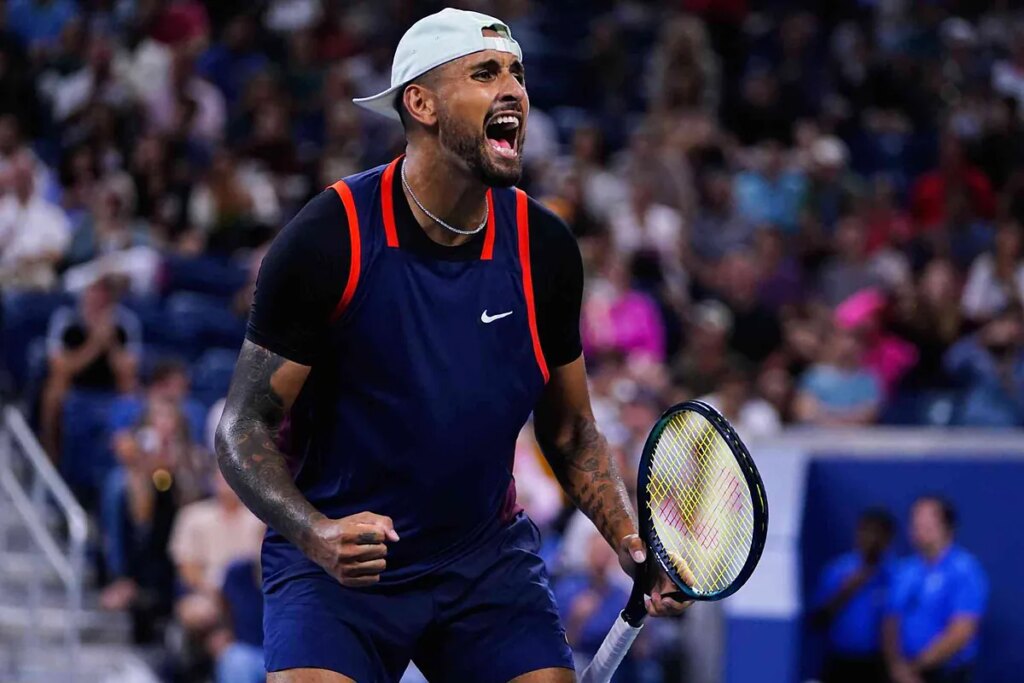Nick Kyrgios offered public support to WTA star Elina Svitolina after she became the target of a barrage of hateful messages following her quarterfinal win at the Canadian Open, shining a spotlight on the darker side of tennis fandom and the mental toll faced by players at the top.
Fresh off a straight-sets victory over Madison Keys in Montreal, Elina Svitolina should have been celebrating her advance to the semifinals of one of the year’s biggest events.
Instead, the Ukrainian found herself forced to respond to an ugly onslaught in her social media inbox, a barrage of vitriol from angry bettors and fans, many of them attacking her not just as an athlete, but as a mother.
Svitolina took a bold stand, sharing screenshots and calling out the abuse on her Instagram story.
“To all the bettors: I’m a mom before I’m an athlete. The way you talk to women – to mothers – is SHAMEFUL. If your moms saw your messages, they’d be disgusted…” she wrote, shining a light on the misogyny and cruelty too often directed at women in sport.
One of the first to react was Australian pro Nick Kyrgios, who echoed Svitolina‘s disgust with a simple but loaded comment on X: “Disgusting.”
The moment sparked a wave of solidarity within the tennis community, with fans and fellow players rallying behind Svitolina.
The incident is just the latest in a string of high-profile cases of online hate targeting players on both the ATP and WTA tours.
Online Abuse Becoming an Ugly Norm in Tennis
For Svitolina, the abuse has a personal sting. Since returning to the WTA after giving birth in 2022, she has used her platform to speak openly about the unique challenges mothers face in professional sport.
The backlash after her win in Canada not only targeted her performance, but also crossed into personal attacks on her family life.
Her husband, ATP veteran Gael Monfils, has faced similar treatment. After an early loss at the Stuttgart Open, Monfils was bombarded with vicious messages-including fans wishing him injury.
In classic Monfils style, he took to Instagram with a mix of humor and honesty: “You are writing that I’m s**t. I know I’m s**t. We both know I’m s**t and you still bet on me? Who is the dumbest between you and me, to be honest?”
Monfils‘ reply turned the tables on the trolls, exposing the absurdity of online abuse with wit and resilience.
Svitolina and Monfils are far from alone. Iga Swiatek, after winning an Olympic bronze medal, admitted she simply tunes out the hate: “I don’t feel like answering or explaining… I simply accept that such things are a part of my life.”
Kyrgios, who has faced his share of scrutiny for his passionate on-court presence, has repeatedly spoken about the emotional weight that comes with being a target of online negativity.
In past interviews, he has described how easily social media allows negativity to seep in, even if players try to ignore it.
“It’s not always easy. It’s so accessible now to go on your phone, social media, Twitter, Instagram, and just go to messages and comments and you see so much negativity,” Kyrgios once told reporters.
“You may not take it in but subconsciously it’s still going into your brain and dealing with hecklers.”
He has also stood up for players like Naomi Osaka, who faced abuse and heckling at tournaments.
Kyrgios stated: “People just think raising the finger, abusing someone, or making racist comments is acceptable in this day and age and I just don’t think that’s acceptable at all. Now you just have to use it as motivation, but that’s easier said than done.”
Growing Call for Change in Tennis Culture
The culture of online hate around high-profile tennis events continues to draw condemnation from inside and outside the sport.
Svitolina‘s choice to speak up, backed by Kyrgios and others, points to a need for more accountability from fans and a shift in how society views and treats professional athletes, especially women and parents.
While many players have developed coping mechanisms, the reality is that the weight of online abuse is real and persistent.
As Svitolina prepares for her next match, her courage in confronting the hate has already struck a chord across tennis, and it has inspired more players and fans to call for a safer, more respectful environment in the game.
Read the full article here

